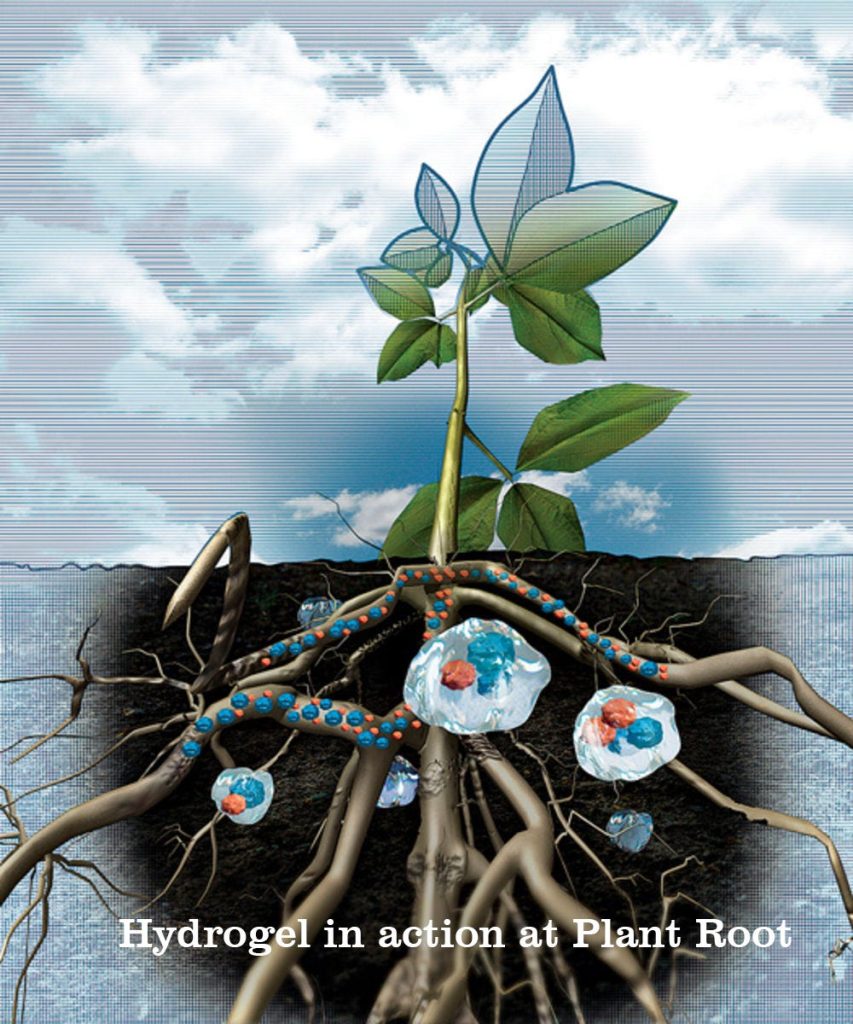- Add organic matter: Besides providing nutrients, decomposed organic matter acts like a sponge, retaining moisture in the soil and releasing it to the roots when needed.
- Know when plants need water: Most plants only require constant moisture during their early stages and when flowering or fruiting. Understanding their water needs and watering only when necessary can reduce irrigation frequency.
- Control weeds: Weeds consume soil moisture and nutrients, harming plants. Keeping the garden free of weeds helps reduce irrigation needs.
- Water deeply and thoroughly: When necessary, ensure thorough deep watering. Shallow watering can keep plant roots near the surface, while deep watering encourages root growth to find water deeper in the soil.
- Water in the morning: Watering in the morning reduces evaporation and helps prevent disease spread.
- Use SAP gel: SAP gel is the best solution for reducing irrigation needs. For details, refer to SAP gel information.

- Use water-efficient irrigation systems: Adopting drip irrigation, sprinkler systems, and other water-efficient methods can significantly reduce water wastage.
- Choose drought-tolerant plants: Planting species adapted to dry conditions can decrease water requirements.
- Cover soil surfaces: Covering soil surfaces reduces water evaporation, keeping the soil moist.
- Prune plants regularly: Regular pruning reduces plant transpiration, lowering water loss.

